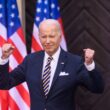Treatment of cancer-related fatigue
The updated guideline on managing cancer-related fatigue (CRF) in adult survivors of cancer recommends evidence- based interventions. A panel of experts conducted a review of 113 randomized controlled trials (RCTs) from 2013 to 2023. Key findings include:
• Effective interventions during and after treatment: Exercise, cognitive behavioral therapy (CBT), mindfulness, and tai chi/qigong showed benefits for managing cancer-related fatigue. Yoga, acupressure, and moxibustion (a traditional Chinese medicine therapy, like acupuncture, that involves burning a plant called “moxa” on or near the skin) were helpful after treatment.
• Supplements: American ginseng showed benefits during treatment, but other dietary supplements did not improve cancer related fatigue.
• End-of-life care: Cognitive behavioral therapy and corticosteroids were beneficial for patients at the end of life.
• Ineffective interventions: L-carnitine, antidepressants, wakefulness agents, and psychostimulants are not recommended. The evidence for these interventions was rated as low to moderate in quality.
Clinicians should avoid ineffective treatments and focus on exercise, cognitive behavioral therapy, and mindfulness for managing cancer-related fatigue during and after treatment.
J Clin Oncol. 2024 Jul 10;42(20):2456-2487. doi: 10.1200/JCO.24.00541. Epub 2024 May 16.











